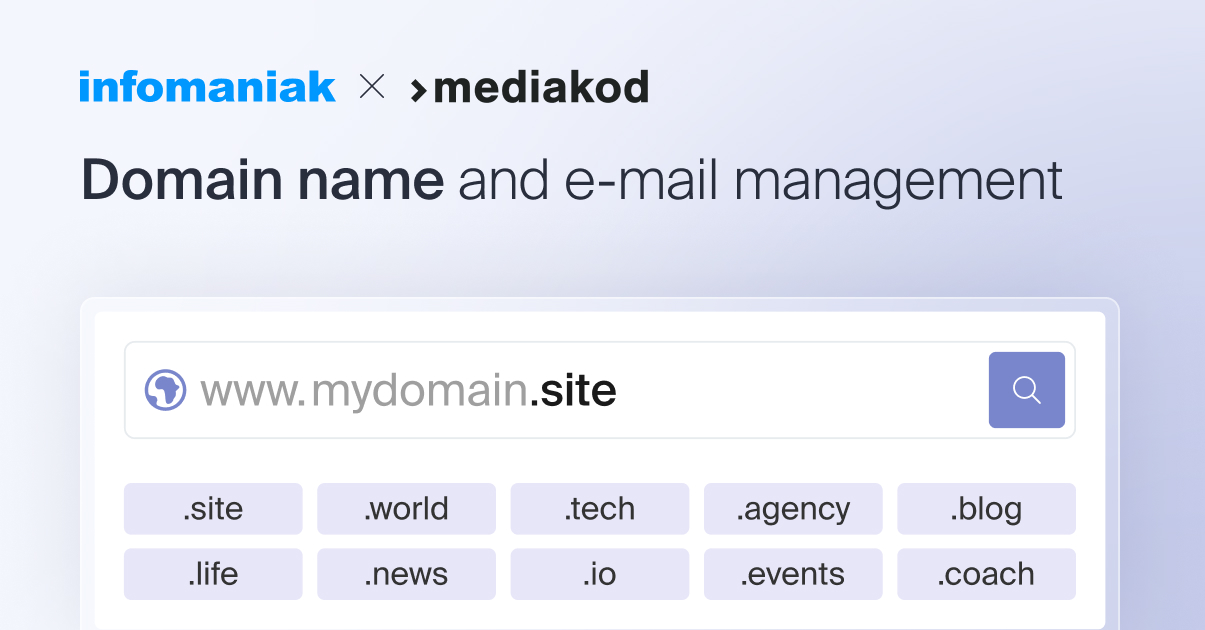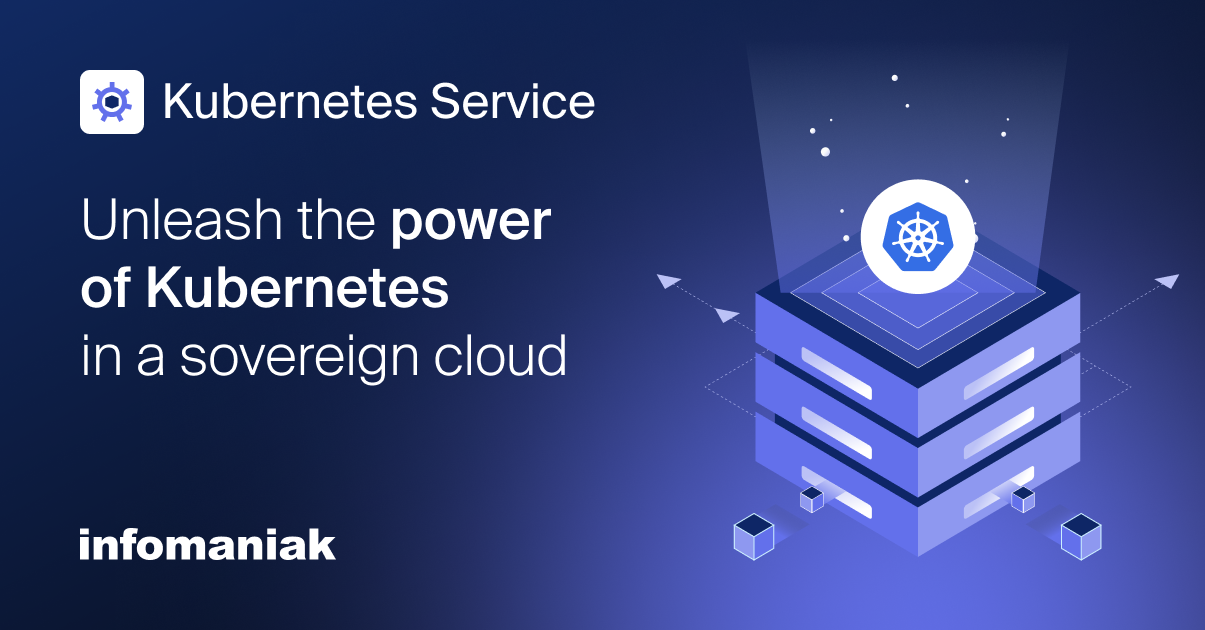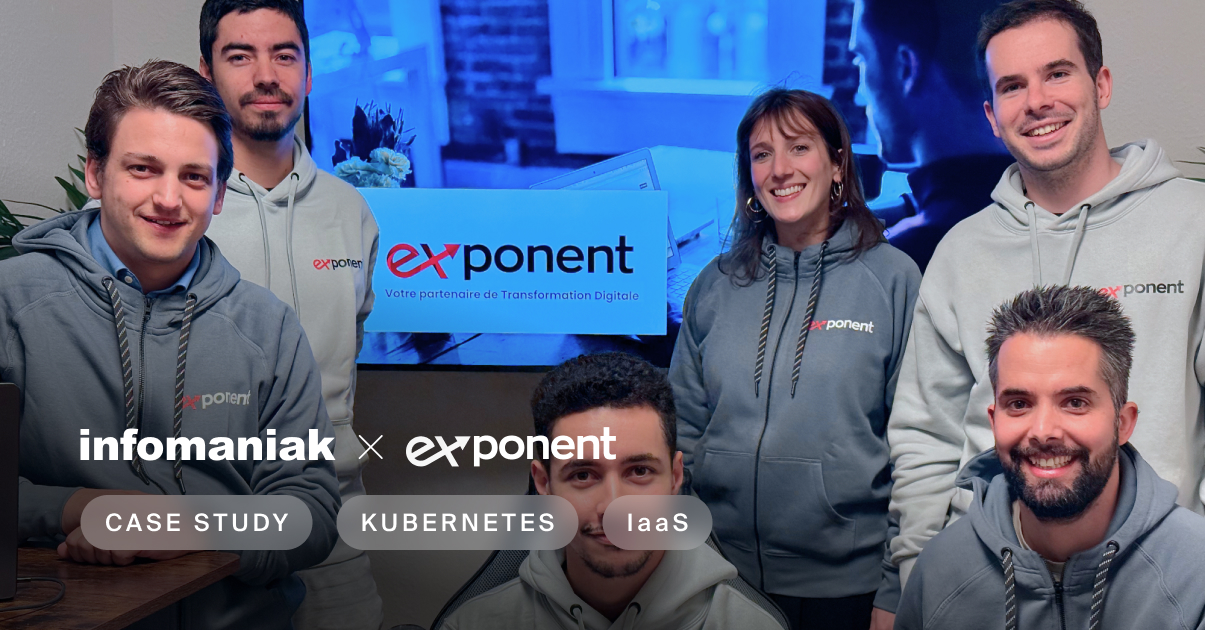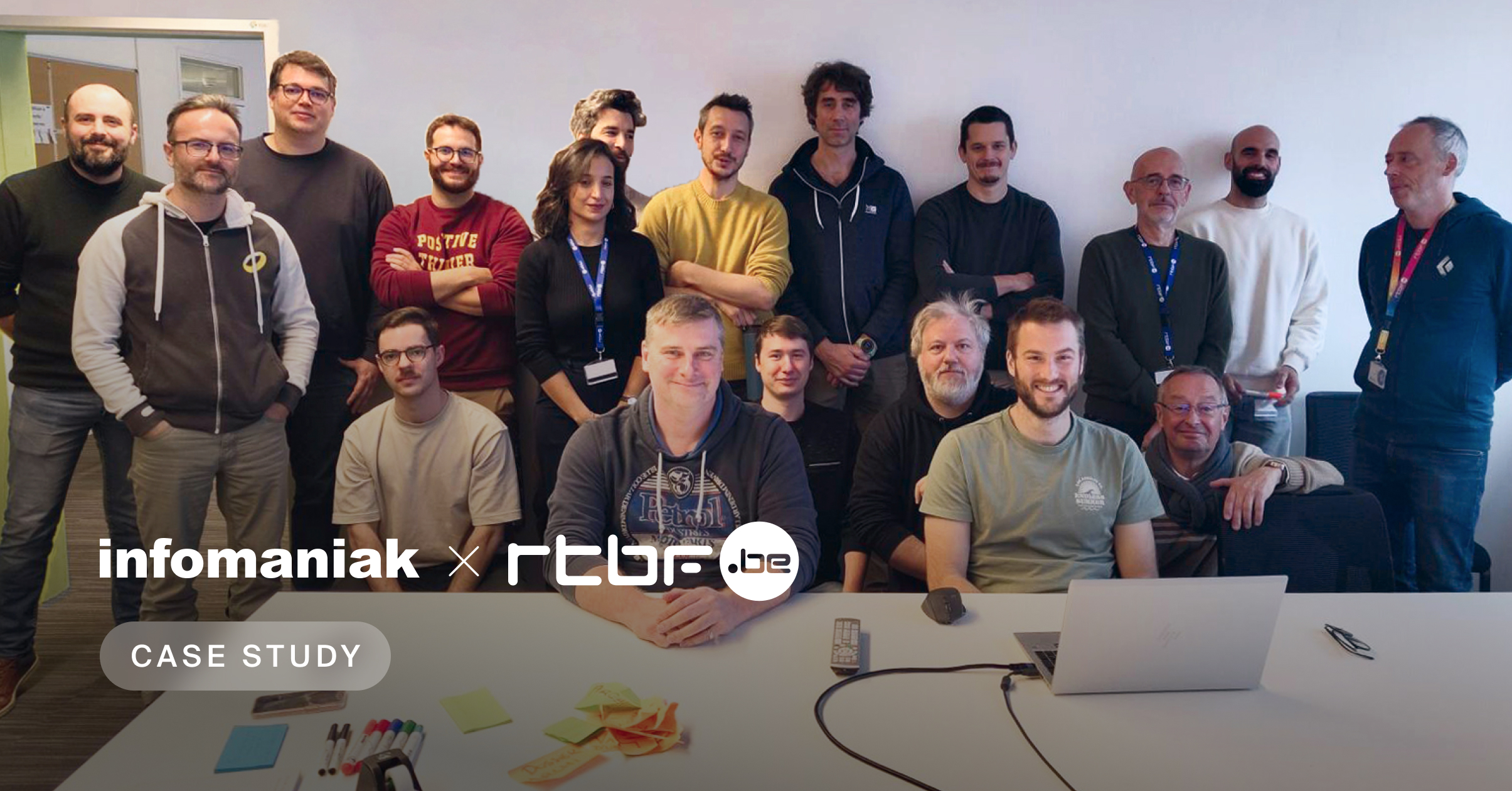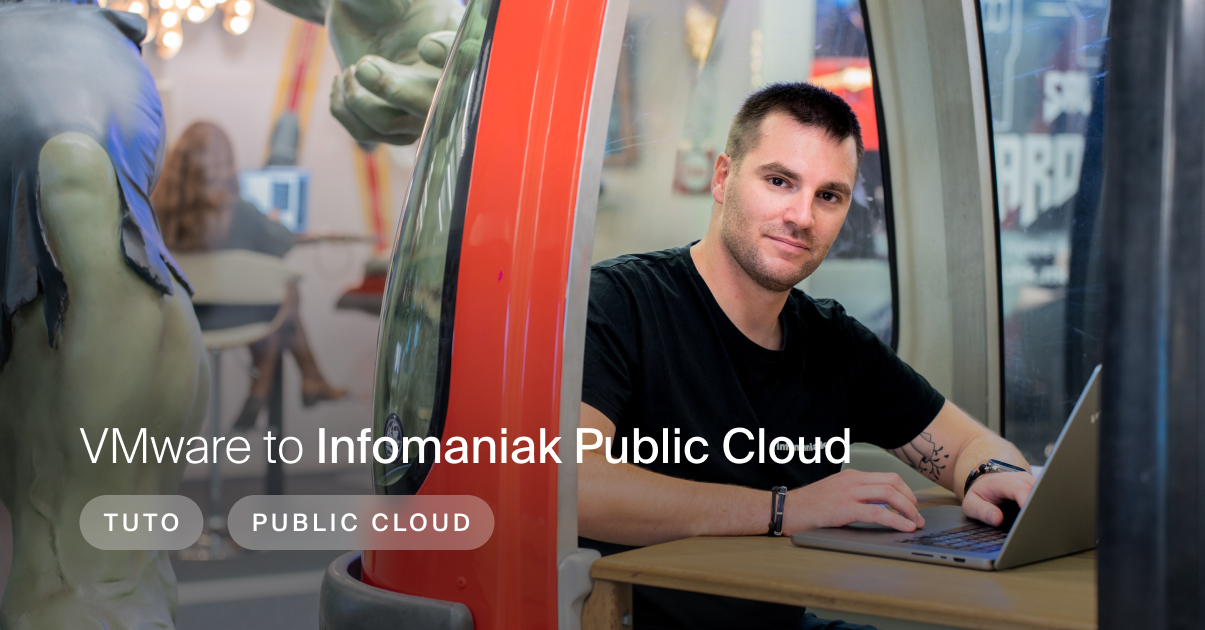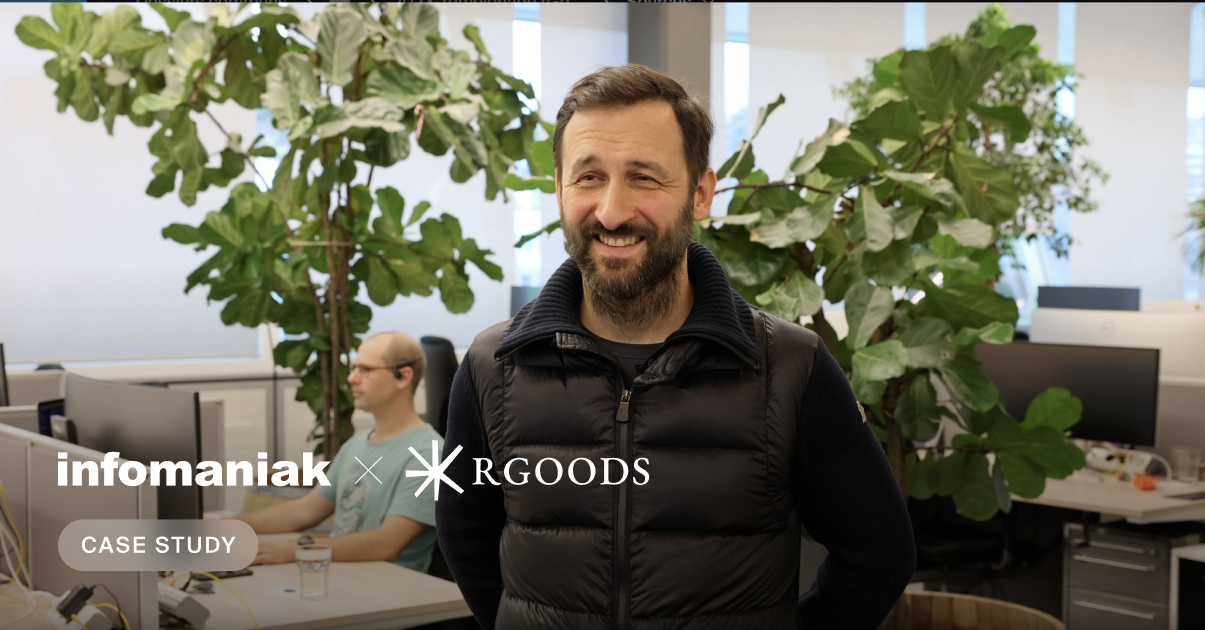Companies have understood that they need to migrate their IT to the cloud in order to be more agile and optimise their costs. But with this migration come at least three challenges: data sovereignty, access costs, and software complexity. While the monopoly of the web giants such as Microsoft Azure, Amazon Web Services and Google Cloud Platform raises debate, we met a number of operators who have opted for a tried-and-tested sovereign infrastructure which is far more advantageous: Infomaniak Public Cloud
Axium Group: price/performance constraint – and ecology
Axium IT designs and manages cloud infrastructures and computer parks throughout French-speaking Switzerland. The company offers an all-in-one package with a real transfer of responsibility. Axium IT CTO Jean-Michel Renard explains: “We’re very agnostic when it comes to infrastructure. We have clients with on-demand IaaS infrastructures hosted at Microsoft Azure, with the constraint of committing resources for three years to have acceptable rates, or at Google Cloud Plateform when the need turns to scalability and automation. Lately, in spite of ourselves, we’ve been offering on-premise servers to meet budgetary needs at the expense of agility, optimum availability and management flexibility. Often we take over cloud infrastructures with poor capacity planning and resource consumption management.”
After multiple trials since its launch, Axium has decided to place Infomaniak Public Cloud at the heart of its IaaS offer:
“We’ve concluded that migrating to this Public Cloud can cut operating costs by up to 80%. It also allows companies to compensate their digital debt thanks to Infomaniak’s ecological infrastructure, which offsets all of its CO2 emissions by 200% in addition to cooling its infrastructures using only filtered ambient air,” says Jean-Michel Renard. “In terms of performance, the catalogue meets 100% of the resource requirements of companies whose infrastructures we know.”
Deeplink, AI specialist: the constraint of data sovereignty and performance
Deeplink specialises in virtual assistants and is developing a platform dedicated to customer interaction: a current challenge for the transformation of companies. “AI consumes a lot of resources,” says Jérôme Berthier, Deeplink.ai CEO.
“We need large amounts of computing power without sacrificing data sovereignty. This is the guarantee we have to offer our bank and administration clients. These two conditions are key, and difficult to find in Switzerland, historically. Infomaniak’s cloud infrastructure is capable of delivering high GPU performance for very recent applications while guaranteeing hardware and software sovereignty of the data.”
For Deeplink, the ability to showcase an award-winning ecological infrastructure is a distinct added benefit for attracting new clients.
Captivity, migration, complexity, hidden costs: invisible traps in the cloud
GAFAM’s public clouds tend to keep users in proprietary ecosystems: any change has a cost (time, labour, etc.) that can be difficult to estimate. To avoid this, it is in the interests of SMEs to use independent services that offer a high degree of autonomy.
“Based on OpenStack open source technology, Infomaniak’s solution offers a high degree of compatibility. It can hold its own against current players.” Jean-Michel Renard of Axium IT.
OpenStack is relied on by NASA, CERN, Tencent, Carrefour, Nike and Blizzard Entertainment. This technology is interoperable with proprietary systems:
“OpenStack allows you, for instance, to freely migrate, step-by-step, all or part of your infrastructure from AWS or Azure. Companies no longer have to choose either/or. That’s the beauty of the hybrid cloud.” Helena Spease, OpenStack community manager.
This feedback underscores the importance of considering cost, performance and sovereignty constraints. The default choice of GAFAM is understandable as it’s still a reflex that is not yet sufficiently weighted. Contrary to what one might think, choosing a local partner with data storage and a legal domicile in the heart of Europe allows for substantial savings and a unique relationship with a cloud partner who contributes to the local economy and know-how.
Find out more
Infomaniak launches a managed Kubernetes service in its sovereign Public Cloud
Thursday April 3rd, 2025
RTBF chooses Infomaniak for a high-availability infrastructure dedicated to more than 2 million users
Monday November 11th, 2024
Alternative to VMware: migrate from VMware ESXi to OpenStack with Infomaniak’s Public Cloud
Friday October 11th, 2024
Case study: RGOODS develops international NGO shops using Infomaniak’s cloud solutions
Thursday March 28th, 2024

 Français
Français Deutsch
Deutsch Italiano
Italiano Español
Español